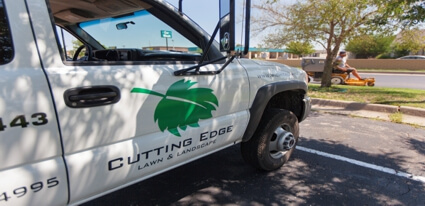
During a heat wave, it’s important to take care of your lawn. You don’t want your grass to die, after all! Keeping your lawn healthy during the summer is a matter of knowing what to do (and what not to do) to keep it from drying out and turning brown. Here are some tips and tricks for keeping your yard looking its best through summer’s worst heat waves:
As the heat wave continues, it is important to know the symptoms of heat-related lawn damage. Heat stress can cause browning and wilting of grass, as well as poor growth and yield. If you notice your lawn is growing more slowly than usual or showing signs of damage, there are a few things you can do:
- Water your lawn more often during this period
- Keep the soil moist so that roots stay alive longer
- Apply mulch around plants to help conserve moisture in the soil
Learn about your grass’s “rest period.”
You should also be aware of your lawn’s “rest period.” Grass needs to rest during the winter, summer, fall, and spring. It needs this time to grow and rejuvenate itself so that it can continue providing a beautiful green lawn all year long.
Keep an eye on the weather and water accordingly.
The first thing to do is check the weather forecast. If it says that your area will be experiencing a heat wave, then you can plan accordingly. You’ll want to keep an eye on the temperature and humidity levels in your area and make sure that your sprinkler system is working properly so that it can keep up with rising temperatures.
- Check your soil: If there’s an unusually large amount of moisture in the soil from heavy rain or irrigation, then it may be time for another round of watering.
- Check your sprinkler system: Is everything working properly? Does one part of the lawn need more attention than another? Are any parts under-irrigated or over-irrigated? The best way to know whether or not you should be watering again is by checking how wet each section of grass feels underfoot-if it doesn’t feel completely saturated, then go ahead and turn off the spigot until things get worse again! It’s always better safe than sorry when dealing with delicate plants like grasses which can easily burn up if exposed to too much heat/sunlight/watering cycles too quickly.”
Water in the morning to prevent evaporation.
- Water in the morning to prevent evaporation – The heat of the day causes water to evaporate from your lawn, so watering in the evening can cause your grass to dry out prematurely and may result in brown spots or dead patches.
- Water deeply and infrequently for best results-don’t be tempted to over-water! This will not only save you money on utilities, but it will also help prevent disease and fungus growth by allowing plants time to dry between waterings.
Skip the fertilizer treatment.
Even if you’re tempted to fertilize your lawn, it’s best to skip this step during a heat wave. Fertilizer can burn the roots in high temperatures, causing your lawn to turn yellow or brown. It can also cause the grass to grow too quickly and in the wrong direction-which means that you might end up with clumps of lush green grass growing right on top of patches that are completely dead.
As we said before: It’s best not to fertilize at all right now-but if you do choose to fertilize anyway, be sure not to overdo it. Feeding your yard every other week should be sufficient (and any more than that will likely do more harm than good).
Keep mowing, but leave your grass longer than usual.
You’ll want to mow your lawn high, not low. Cutting the grass too short can cause it to brown and become brittle. Mow often, but not too often-once every two weeks should be fine. Also, mow at the same height all the time; this will help your lawn maintain its density and shade roots from being exposed to sunlight for long periods.
Finally, don’t wait until it gets dark outside-mow after lunch or early in the morning so that your lawn isn’t baking in direct sunlight for hours at a time. If you want an extra step (and we do!), consider hiring someone else to care for your lawn during this heat wave season so that you don’t have anything else on your plate!
Set up a sprinkler system.
Using a timer, set your sprinklers to turn on and off automatically so that they’re not running when you aren’t home. This will help ensure that the lawn gets enough water without over-watering it. (Over-watering can lead to fungus growth, which is bad for grass.) Also, avoid watering at night or during windy days because the leaves of your plants may get too wet and rot if exposed to rain or dew after being water-and those are both things that happen in heat waves!
If you don’t have any experience with irrigation systems but want something easy, there are lots of options out there (including cheap ones). Just be sure whatever option you choose has an automatic shutoff feature so that if something goes wrong (like forgetting about it), no damage will occur.
Make sure to take care of your lawn during heat waves so it will stay healthy.
Now that you know how to protect your lawn from damage during heat waves, let’s get down to the nitty-gritty of how you can make sure your lawn stays healthy.
- Make sure your soil is healthy and fertile. The healthiest grass will be able to withstand a lot of abuse, and it’ll also be more resistant to diseases and pests that may come along later on. Proper fertilization can help keep up with these growth cycles – when temperatures are particularly high, though, it’s best to skip fertilizing altogether until things cool off again.
- Use aeration tools regularly! When you mow your grass with an aerator attachment every week or so (at maximum), this allows air into the roots of your plants which improves soil drainage and helps them take in nutrients better without being weighed down by excess water or other substances in their environment which might otherwise hamper their development as well as causing them stress over time.
Conclusion
Finally, the most important thing to remember is that your lawn needs care and attention. That’s why we recommend checking on it regularly and making sure to water it during these hot summer months. You want it to stay green and healthy all year round. If you follow these steps, then your grass will be able to withstand any heat wave thrown its way!


